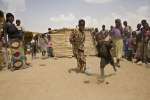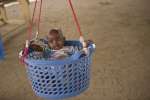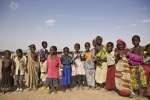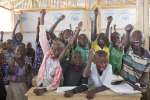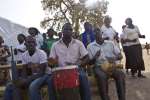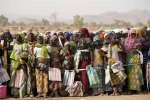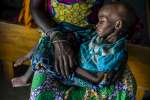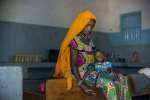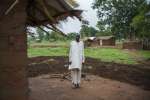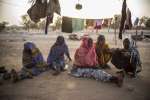UNHCR concern about return of Nigerians, shrinking humanitarian space
Press Releases, 14 August 2015
The UN refugee agency is concerned about the escalating violence in and around Nigeria and its impact on the situation of Nigerian refugees in surrounding host countries, including a shrinking humanitarian space in which they can seek asylum.
UNHCR salutes the generosity and humanitarian spirit of Cameroon, Chad and Niger in opening their doors to tens of thousands of thousands of people fleeing conflict in their home areas in north-east Nigeria over the past two years.
We share their commitment to ensuring the safety and protection of these people in need while at the same time ensuring the security of their own citizens and border areas. UNHCR has, for example, encouraged refugees to move away from front line border areas to camps deeper inland, where they can receive aid and protection.
But amid the fluid military situation in border areas since Nigerian militants widened their campaign earlier this year, thousands of people have been deported or returned to Nigeria from Cameroon and Chad in July and August. These include 925 Nigerians sent home from Cameroon and Chad from July 9-11 and 50 Nigerians being screened by UNHCR at the Gourounguel transit camp on August 3.
UNHCR is unaware at this time if they include refugees who may have gone back involuntarily, but we have been in close and regular contact with the relevant governments and have expressed our concern at the way these returns were conducted. UNHCR fears that such deportations lead to shrinking of the protection and humanitarian space and the agency reminds governments of their duty to protect asylum-seekers fleeing human rights violations and to respect the principle of non-refoulement (non-return).
We have reiterated in our talks with government counterparts that certain principles and international standards should be respected, even in the face of serious security concerns. These include the right to apply for asylum and the need for joint screening with UNHCR for people in need of international protection as well as evacuation for those willing to go back after making an informed decision about the situation in areas of return.
We are encouraged by the response, with the authorities in Cameroon assuring UNHCR that they will take the necessary measures to comply with international standards.
UNHCR will continue to monitor the situation of refugees and returnees, while noting that protection and humanitarian assistance for returnees is becoming increasingly difficult due to security and access difficulties. UNHCR will also continue to be ready to offer advice and assistance, in areas such as screening, to Nigeria and the governments of Cameron, Chad and Niger.
News contacts:
- In Cameroon, Djerassem Mbaiorem, on +237 70 40 18 41
- In Dakar, Simplice Kpandji, on +221 77 333 98 83
- In Geneva, Leo Dobbs, on +41 79 883 6347











